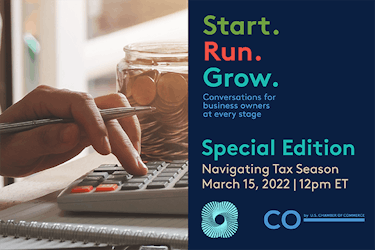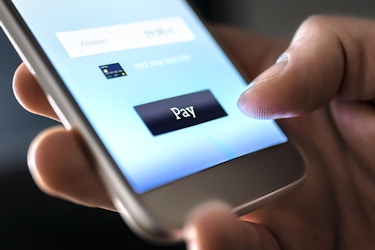Ready, Set, Startup
If you're looking to open a new business, this could be your year. Follow our step-by-step guide and before you know it, you'll be putting your business ideas into action.
Ready, Set, Startup
Startup
Startup Checklist: 20 Things to Do Before You Start Your Business
Before you start your new business, here are 20 tasks to check off your startup to-do list.
Building Partnerships
Streamlining Processes
Strategy
7 Business Tasks You Can Outsource
If your small business internal team doesn’t have the bandwidth for every necessary task, consider outsourcing to a third party.
Strategy
Finding a Business Accountant
Here's how to find the right business accountant for your startup.
Launching a Post-Pandemic Startup
Latest—
Rebecca Minkoff on How to Build a Brand That Evolves Without Losing Yourself
Renowned fashion designer Rebecca Minkoff shares how she makes values-aligned decisions and faces difficult business situations without losing sight of what matters.
How the New Era of Agentic Commerce Is Reshaping How Companies Do Business
AI tools are evolving rapidly and will lead to dramatic changes in how customers interact with brands and make purchases.
Gntl’s Multifunctional Products Are Winning Beauty Shoppers
The skin care industry has flourished by promoting product-laden regimens. The founder of Gntl is out to prove that less can be more.
CO—100 Honoree Race City Flight Operations Innovates Pilot Training
Race City Flight Operations blends advanced aviation technology with personalized, career-focused instruction to modernize pilot training and the student experience.
How CO—100 Honoree ModernTone Studios Makes Music Education High-Tech
ModernTone Studios blends advanced technology with personalized music education and production to deliver a scalable, human-centered creative experience.
How Brands Are Using AI to Minimize the Costs of Product Returns
Businesses from Flux Footwear to Piper & Scoot apparel are tapping the technology to reduce merchandise return rates with solutions at various stages of the consumer buying journey.
Best Job Posting Sites for Small Businesses
Try advertising on these eight job platforms to find qualified candidates near you.
Hiring and Recruiting: Key Differences and Best Practices
Discover the difference between hiring and recruiting, when to hire internally versus externally, and best practices for attracting top talent to your organization.
How 3 Startups Started Selling Product at Walmart
How a drink mixer brand, a women’s health business, and a stain removal disruptor cracked the world’s biggest retailer’s tough standards by leveraging Amazon success, buzzy products, and strategic pitches.
A Small Business Owner’s Guide to Increasing Sales
Whether you’re in a sales slump or planning for growth, improving your sales requires the right strategy. Here’s how to increase sales in your small business.






































